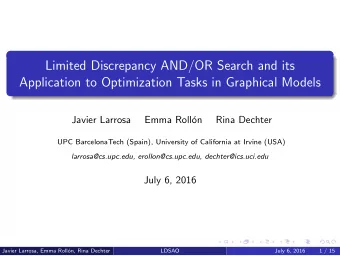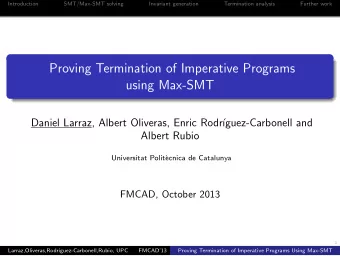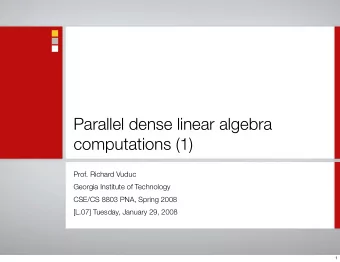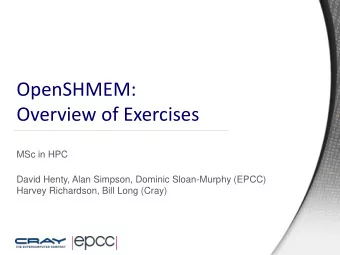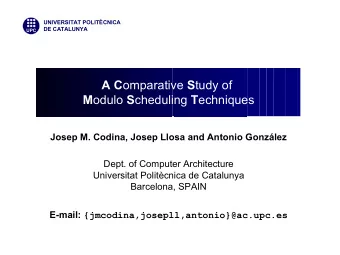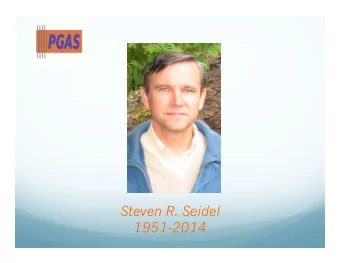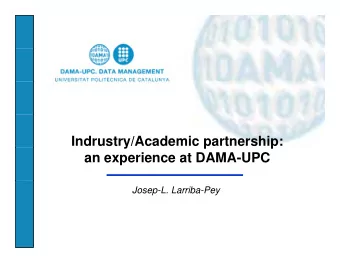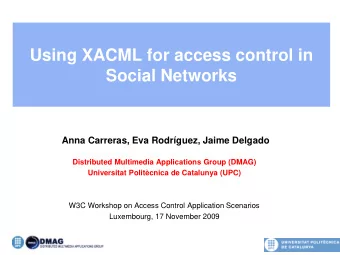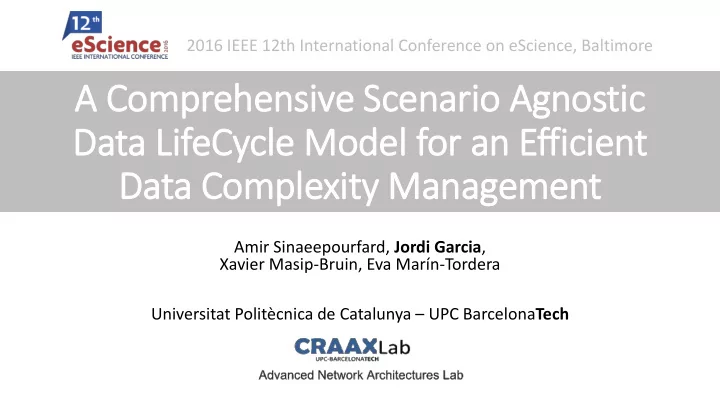
A Comprehensive Scenario Agnostic Data LifeCycle Model for an - PowerPoint PPT Presentation
2016 IEEE 12th International Conference on eScience, Baltimore A Comprehensive Scenario Agnostic Data LifeCycle Model for an Efficient Data Complexity Management Amir Sinaeepourfard, Jordi Garcia , Xavier Masip-Bruin, Eva Marn-Tordera
2016 IEEE 12th International Conference on eScience, Baltimore A Comprehensive Scenario Agnostic Data LifeCycle Model for an Efficient Data Complexity Management Amir Sinaeepourfard, Jordi Garcia , Xavier Masip-Bruin, Eva Marín-Tordera Universitat Politècnica de Catalunya – UPC Barcelona Tech
Data is important … • … in eScience , but also in many other disciplines! • There is a lot of data in the world … • … and data generation rate is growing exponentially • The particle accelerator (LHC) at CERN (European Organization for Nuclear Research, Switzerland) generates 40 TB per second during experimentation In 4 days of experimentation 13,8 EBytes 13.824.000 TB = 13,8 EB • So data management and organization is a huge concern Source: IDC’s Digital Universe Study, sponsored by EMC, December 2012
Purpose of our research Understanding how data is organized and managed in complex systems … … and, contribute with a data management model appropriate for our scenario
Data LifeCycle (DLC) model • Integral data management framework • From collection, to processing, and preservation, till removal • Specify policies for each phase, and define relationship among phases • Main goals of data lifecycle models • Operate efficiently • Eliminate waste • Provide quality and security • Prepare data for efficient use • Benefits of designing a good DLC • Facilitate the planning and complexity design • Create sustainable software, …
In this presentation … • Contextualization of this research • Preliminary work: Survey of current DLC models • Limitations on current proposals • Our proposal: The comprehensive scenario agnostic DLC model • Model description • Model assessment • Use cases: Adaption to different scenarios • Conclusions & following research directions
Preliminary work (1) A Survey on Data Lifecycle Models: Discussions toward the 6Vs Challenges Technical Report (UPC-DACRR-2015-18), 2015 • Survey of all DLC models found in the literature ( and more! ) … and more! • … and assessment with respect to the main data challenges: the 6Vs • V alue, V olume, V ariety, V elocity, V ariability, and V eracity
Preliminary work (2) A Survey on Data Lifecycle Models: Discussions toward the 6Vs Challenges Technical Report (UPC-DACRR-2015-18), 2015 • Conclusions (of survey): 1. Each model addresses a particular scenario, so it is not general 2. No model addresses successfully all 6Vs challenges • Proposal for this current research stage: Design a comprehensive scenario agnostic Data LifeCycle (COSA-DLC) model Comprehensive = Addresses all 6Vs challenges Scenario agnostic = Can be adapted to any specific scenario
The COSA-DLC model (1) • At block level
The COSA-DLC model (2) • At phases level
The 6Vs challenges 1. V alue: of information 4. V elocity: data rate & efficiency Processing and analysis provide Designed for high performance: added value to data data collection & data processing 2. V olume: (huge) of data 5. V ariability: meaning over time Addressed in collection and archive Addressed in description and phases classification phases. Data analysis? 3. V ariety: from different sources 6. V eracity: quality and/or security Mainly collection, but also filtering, One data quality phase in each description and classification phase block (depends on business model)
Ease of adaptation (1) • The UPC Barcelona Tech library
Ease of adaptation (2) • The Barcelona Smart City architecture
Conclusions • COSA-DLC model CO mprehensive, with respect to the 6Vs challenges S cenario A gnostic, easily adaptable to any scenario • Advantages / applicability • Use this model in new data management design • Modifications and / or extensions easily done • Guarantee that all 6Vs challenges are addressed … • … or facility to detect an eventual lack of data quality
Future (current) directions • Adaptation of the COSA-DLC model to our specific Smart City scenario • Global / heterogeneous resources management strategy • From fog to cloud (F2C) architecture, providing the best of • High computing capabilities at cloud level • Low latencies at fog level (real-time) • … but also network traffic reduction • … plus increased security through closest data accesses
Thanks for your attention jordig@ac.upc.edu
Recommend
More recommend
Explore More Topics
Stay informed with curated content and fresh updates.
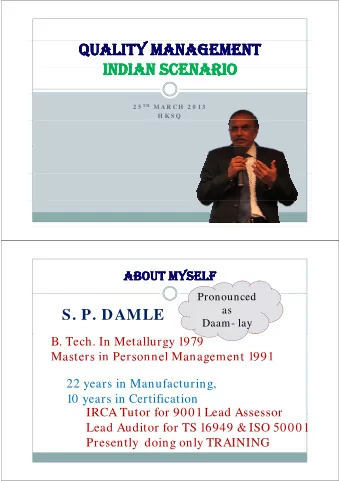

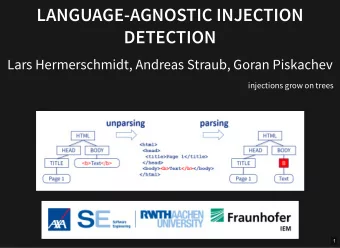
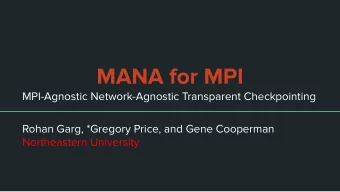
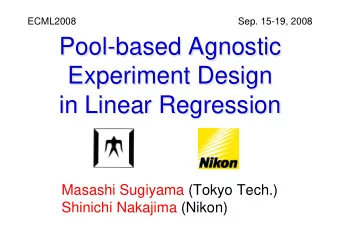
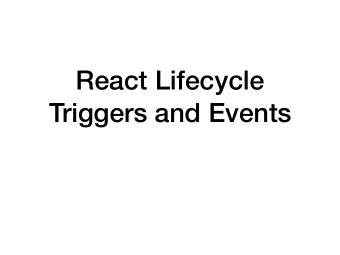
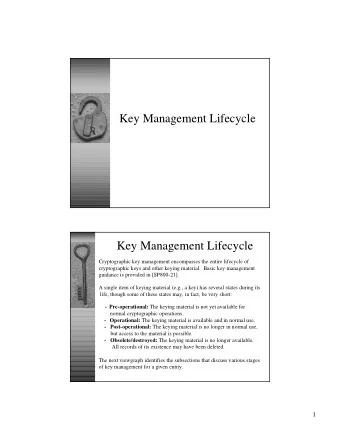
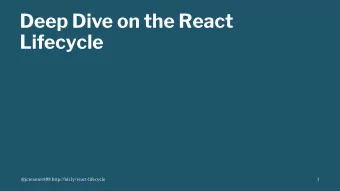
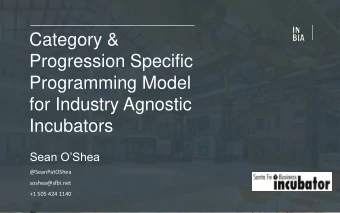
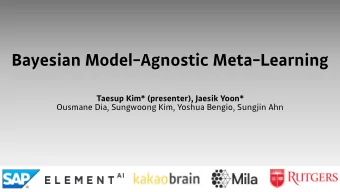
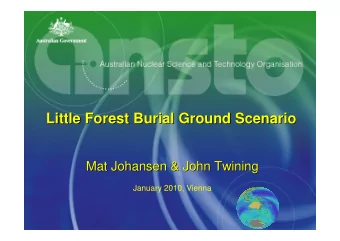
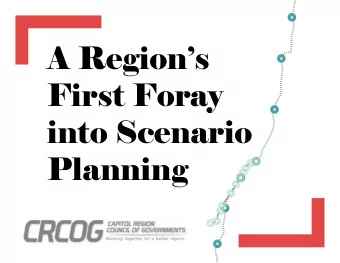
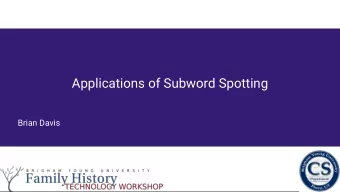
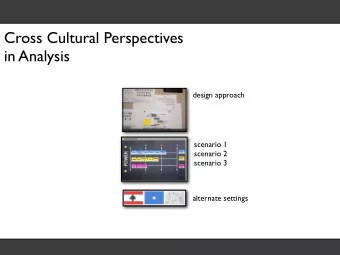
![CS485/685 Lecture 16: March 1, 2012 Agnostic Learning [BDSS] Chapters 2, 3 CS485/685 (c) 2012 P.](https://c.sambuz.com/660399/cs485-685-lecture-16-march-1-2012-s.webp)

